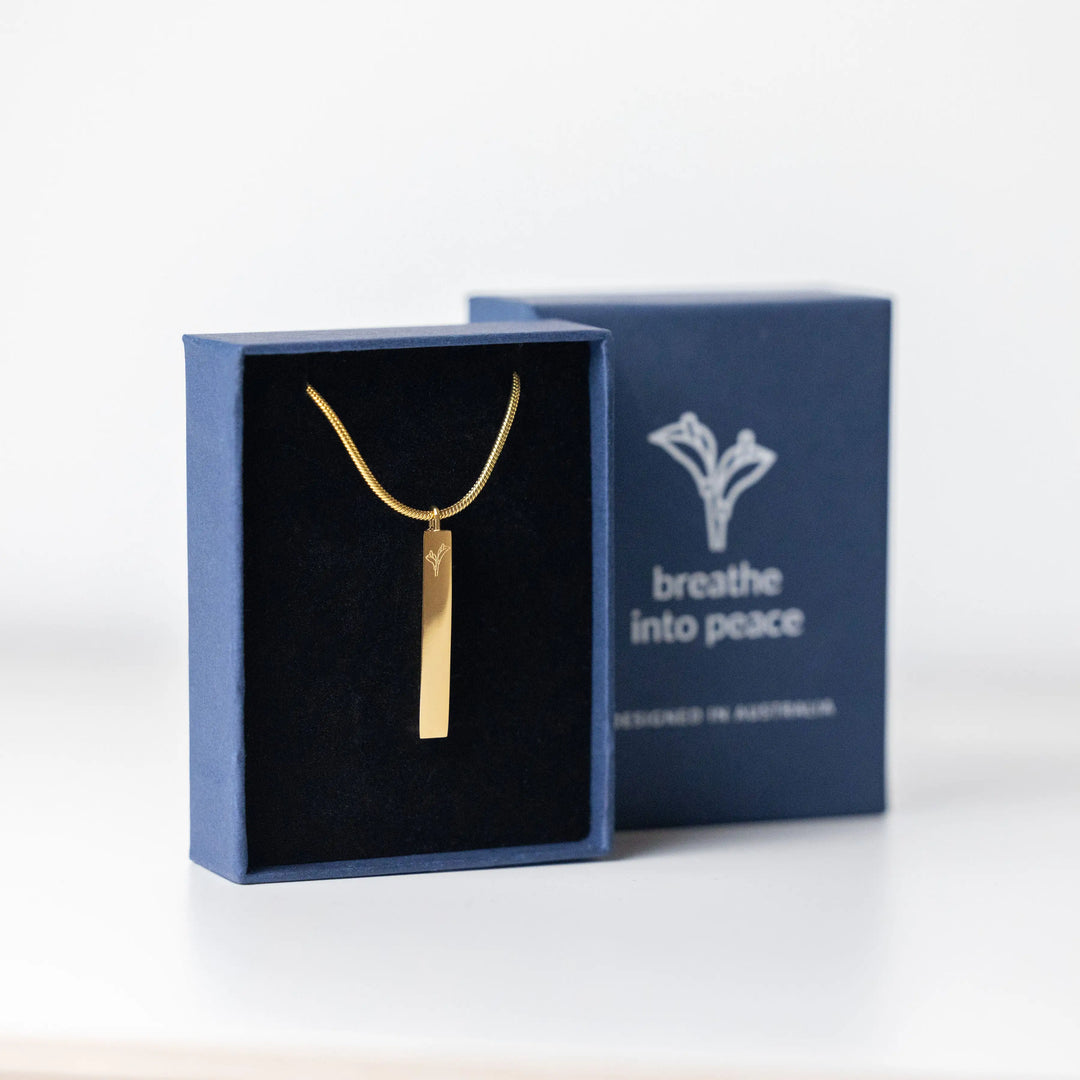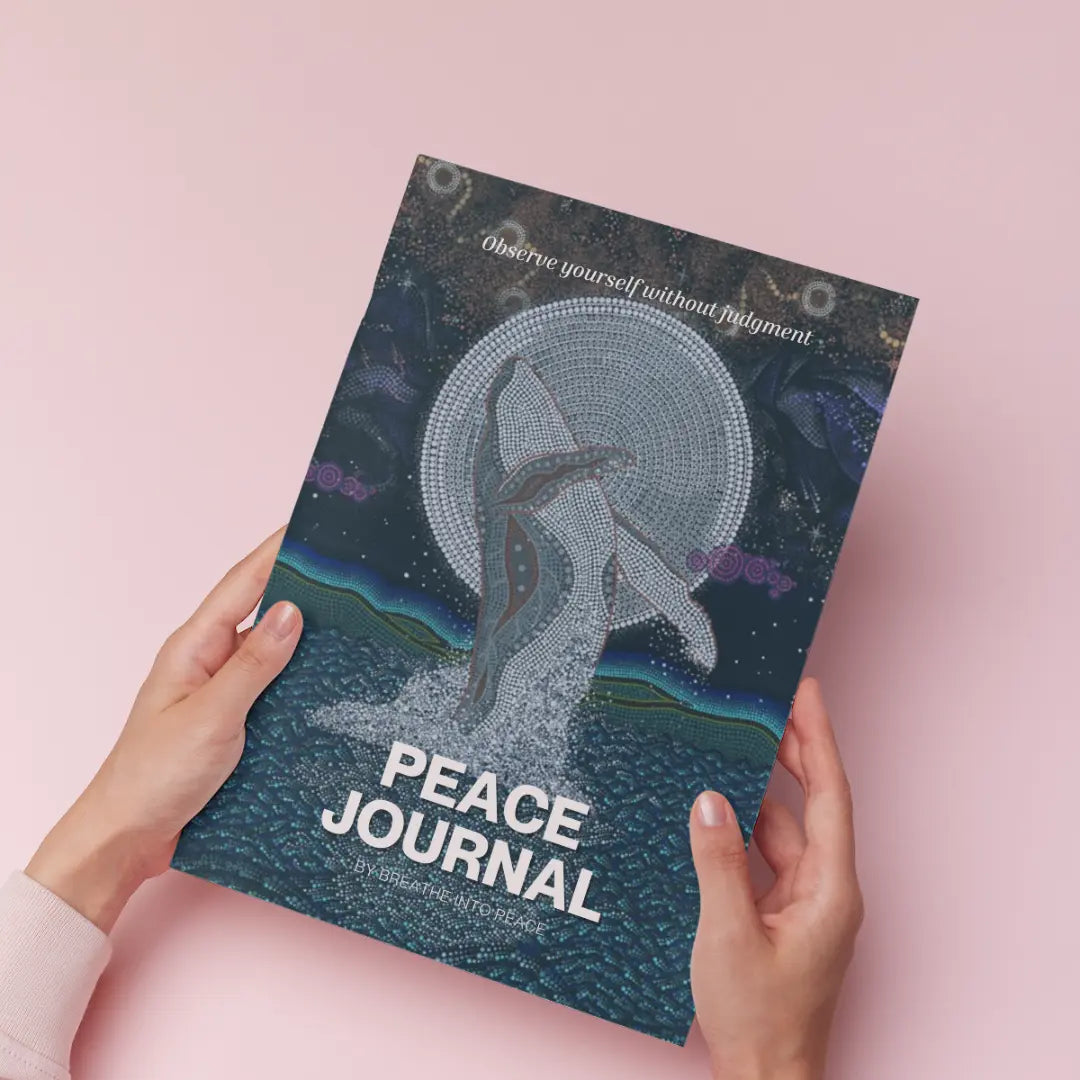Anxiety Necklace: The Gift of Calm
Treat yourself and your dear ones with an anxiety necklace that helps reduce stress and anxiety this Christmas. According to statistics, Australians aged 16 to 85 years old live with anxiety disorder, with females taking up the bulk. Although more people have become more aware of mental wellness, access to mental wellness professionals is priced at least AU$100 per hour, often beyond one’s budget.
The good news is that there are many economical and free anxiety relief and improvement tools. From meditation apps and online support groups to self-help books and relaxation techniques, there are many different tools and strategies you can use to find relief and feel more in control of your mental health. With a little research and experimentation, you can discover the best methods for you and start feeling more calm, centred, and confident in your daily life. However, we still advise seeking professional help, especially for those in emotional and mental crisis.
Understanding Anxiety
Anxiety is a common experience that affects people in different ways. While some may feel anxious during specific events such as exams, health scares, or when loved ones are in trouble, others experience anxiety on a deeper and more frequent level that can significantly disrupt their daily lives.
Anxiety can manifest in various ways, including physical symptoms such as sweating, trembling, and increased heart rate, as well as psychological symptoms such as excessive worry, fear, and restlessness. It may even cause brain fog since it takes up a huge amount of mental energy.
These symptoms can be overwhelming and may lead to avoidance behaviours, social isolation, and difficulty in performing daily tasks. Statistics show that 11% of Australians experience social anxiety. The impact of anxiety on daily life can be significant, affecting one's ability to work, study, maintain relationships, and engage in enjoyable activities.
Healthy Coping Mechanisms
Mental stress can be overwhelming and affect our daily lives. However, there are several ways to relieve mental stress without breaking the bank. Here are a few healthy coping mechanisms for mental wellness that you can try separately or a combination of several techniques to see which helps you best:
- Therapy and Counseling: Talking to a professional therapist or counselor can help you manage your stress levels and improve your mental health. They can provide you with the necessary tools and techniques to cope with stress and anxiety.
- Regular Exercises: Exercise is a great way to reduce stress and improve your overall mental health. It releases endorphins, natural mood boosters, and helps you feel more relaxed and energised.
- Journaling for mental health: Writing down your thoughts and feelings can help you process your emotions and reduce stress. It can also help you identify patterns in your behavior and thought processes contributing to your stress levels.
- Hobbies: Engaging in enjoyable activities can help you relax and reduce stress. Whether it's painting, playing an instrument, or gardening, finding a hobby that you love can be a great way to take your mind off of your worries.
- Getting enough sleep: Lack of sleep can contribute to stress and anxiety. It's important to get enough sleep each night to help your body and mind recharge. Aim for 7-8 hours of sleep each night to help you feel more rested and refreshed.
- Deep Breathing- Deep breathing exercises are often used as a component of mindfulness and relaxation techniques. When you engage in deep breathing, it can help activate the body's relaxation response, which counteracts the stress response associated with anxiety.
- Progressive Muscle Relaxation (PMR)- Progressive Muscle Relaxation (PMR) is a relaxation technique that involves tensing and then gradually releasing different muscle groups in the body. It's commonly used as a stress management tool and can contribute to overall mental wellness in several ways
- Anxiety accessories- Some people find tools like fidget toys, anxiety necklaces, aromatherapy jewelry, and weighted blankets helpful in managing and reducing stress.
What are Anxiety Accessories?
Jewelry for mental health relief refers to a range of items that are specifically designed to provide comfort, support, or distraction for individuals who are dealing with depression and anxiety disorders. These items can include bracelets, necklaces, rings, and other accessories made from materials such as gemstones, crystals, and metals. Some of these pieces are designed to promote relaxation and calmness, while others are intended to provide a sense of grounding and stability. Additionally, some jewelry for mental health relief may feature symbols or messages intended to inspire hope and positivity.
Anxiety necklaces, like other grounding or distraction tools, can work by providing a tangible and sensory-focused point of attention. Grounding techniques are often used to help individuals manage anxiety, stress, or overwhelming emotions by bringing their focus back to the present moment. Here's how they work:
- Tactile Engagement
Many anxiety necklaces are designed with textures or features that offer a tactile experience. Touching or holding onto the necklace can provide a physical sensation that grounds the individual in the present moment. This tactile engagement can serve as a distraction from anxious thoughts.
- Mindfulness and Intention
Some anxiety necklaces may be associated with mindfulness practices. For example, if the necklace is designed to hold essential oils or has specific symbols related to relaxation, the act of engaging with it can serve as a reminder to be mindful and intentional about managing anxiety.
- Symbolic Meaning
The necklace may have symbolic meaning or be associated with positive affirmations. Wearing a piece of jewelry with personal significance can be a reminder of inner strength, calmness, or resilience, helping the individual feel more grounded in times of anxiety.
- Breathing and Relaxation Focus
Certain anxiety necklaces may be designed to facilitate deep breathing exercises. For instance, a necklace with a pendant that moves rhythmically with the wearer's breath can encourage conscious and slow breathing, promoting relaxation.
- Visual Distraction
The necklace itself or its design may provide a visual point of focus. Engaging with the visual aspect of the accessory can redirect attention away from anxious thoughts and create a calming effect.
It's important to note that the effectiveness of anxiety jewelry, like any grounding or distraction technique, can vary from person to person. While some individuals may find them helpful, others may prefer different methods for managing anxiety. It's also crucial to view anxiety necklaces as complementary tools and not substitutes for professional mental health support when needed. If anxiety is significantly impacting someone's well-being, it's advisable to consult with a mental health professional for guidance and assistance.
Choosing the Right Necklace for Mental Health Support
Choosing the right necklace to help with anxiety relief can be a personal and thoughtful process. Here are some tips to help you find the one that suits you best:
- Intention and Symbolism
Consider the symbolism behind the necklace. Some people find comfort in certain symbols or stones believed to have calming properties. For example, amethyst, aquamarine, and rose quartz are often associated with relaxation and tranquility.
- Materials
Pay attention to the materials used in the necklace. Some individuals may prefer certain metals over others due to skin sensitivities. Common materials include sterling silver, gold, stainless steel, or hypoallergenic options.
- Design and Style
Choose a design that resonates with you. Some people prefer discreet and simple designs, while others may find comfort in more intricate or personalized pieces. Consider whether you want something more ornate or minimalist.
- Functionality
Some anxiety necklaces are designed with additional features, such as essential oil diffusers or stress balls. Determine whether these added functionalities align with your preferences and if they might contribute to your overall sense of calm.
- Size and Length
Ensure that the necklace is a comfortable length for you. Some individuals may prefer longer chains, while others may find shorter ones more suitable. Consider how the necklace feels when worn and if it provides a sense of security.
- Personalization
Look for options that allow personalization, such as adding initials, birthstones, or meaningful charms. If you're giving it to a friend or a family member, consider what they like. Having a personalized element can make the necklace more special and memorable, making the recipient of your gift feel how much you appreciate them.
- Reviews and Recommendations
Check reviews and seek recommendations from others who have purchased anxiety necklaces. This can provide insights into the effectiveness and durability of the necklace you're considering.
- Budget
Set a budget for your anxiety necklace. There are options available at various price points, and finding one that fits your budget will ensure a satisfying purchase.
Remember that the most important factor is how the necklace makes you feel. It should bring you comfort and a sense of peace. If possible, try on different styles and designs to see what resonates with you before deciding.
Anxiety is a common experience that affects people in different ways. It can manifest in various ways, including physical and psychological symptoms that can significantly disrupt daily life. However, there are many healthy coping mechanisms for mental wellness that you can try, including therapy, exercise, journaling, hobbies, getting enough sleep, deep breathing, progressive muscle relaxation, and anxiety accessories. Aside from giving an anxiety necklace as a Christmas gift can be helpful, seeking professional help is also advised, especially for those in emotional and mental crises.





Leave a comment